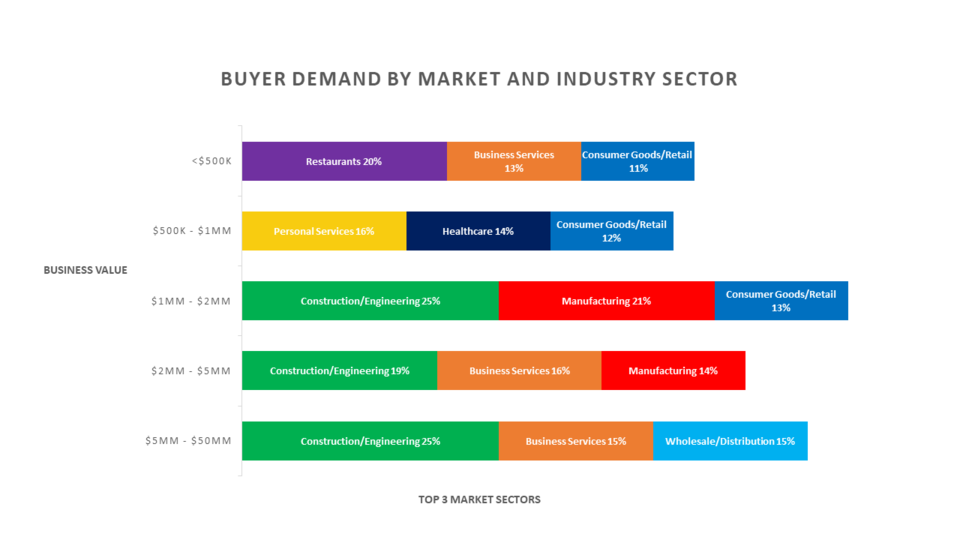Very few people would have foreseen the impact that COVID-19 has had on us personally, commercially, domestically and internationally. For many in the business world, this pandemic has been a game-changer. Applying Darwin’s mantra of “It is not the strongest of the species that survives, nor the most intelligent that survives. It is the one that is the most adaptable to change,” is very relevant in this current business environment. So, what does this mean for strategic or financial buyers looking for effective acquisition opportunities?
Let’s first consider the impact on business sales during the pandemic.
The recent IBBA and M&A Source – Q4 Market Pulsesurvey, published by the International Business Brokers Association M&A (mergers and acquisitions) Source, reported businesses that are insulated from the impacts of COVID-19 witnessed:
· A seller’s market
· Steady buyer demand (strategic and financial buyers)
· No impact on pricing
· Generally represented by manufacturers, distributors, processors, professional services, financial services and information technology
However, for businesses impacted by COVID-19 it is a different tale. These businesses witnessed:
· A buyer’s market
· Vendor concessions on pricing and terms
· Potential buyers withdrawing from the market pending turnaround in performance
· Generally represented by hospitality, food service, restaurants, conference organizers, tourism and brick-and-mortar retail
The ability to withstand the adverse impacts of the pandemic generally increased with business size. Compared to small, owner-managed operations, businesses of $5 million in enterprise value or greater generally have the financial performance, structure and market that allow it to continue to survive and thrive.
Although the IBBA and M&A Source survey is based on deals across North America, the underlying trends are similar to what we have been witnessing in our own practice.
What does this mean for you?
It is predicted that the business transaction marketplace will not return to pre-COVID-19 levels until Q2 2021 or later. With retirement being the primary motivation for business owners to sell, this will split potential vendors into two categories. The fallout from the pandemic will hasten the business sale decision for some, while delaying others.
The disruption to the market balance will have an impact on how buyers will look at opportunities. For all buyer types, fit is often considered the most important variable. Buyers should take caution on distressed businesses. Not only will future performance be predicated on how the business survives the pandemic, but also what working capital or additional capital expenditures may be necessary to realize past performance. Invariably, a deal may not always be a deal.
Individual and Personal Buyers
While the pandemic will have different impacts on business sectors, individual buyers should remain focused on the following core metrics:
1. Does the business provide you with a reasonable living wage?
2. How will you pay for the business and what portion can be financed?
3. Can the business support debt-servicing costs?
4. Will the business provide a reasonable return on invested capital?
5. Does the business have growth potential?
It is critical to understand the historical (pre-pandemic), current and projected financial performance for the business. Will this meet your minimum income and debt-servicing requirements?
Aside from the financial considerations, the operational considerations are just as important. Do you have the skills required to run the business? If not, how long will be your personal learning curve? You will need to assess the skills of the key staff to ensure continuity of business during the training and transition period.
If these conditions have been satisfied, you have probably determined the business is a reasonable fit and, in the process, you have developed a comfort level to move forward.
Strategic and industry buyers
For industry buyers, many of the financial considerations will be similar to that of a personal buyer; however, the operational considerations will be more focused on the strategic fit.
Strategic buyers are often those who are interested in a target's fit into their own long-range business plans. They may be competitors looking to expand into a new area or a complimentary business looking to add new product lines.
The risk tolerance for these buyers may be higher than that of a personal buyer, as operating efficiencies and synergies can often be realized once the acquisition is completed.
Whether an individual or an industry buyer, business opportunities are present during this pandemic. The critical element will be to understand how COVID-19 has impacted given sectors. No matter how good the ‘deal’ looks, buyers should not overlook the fundamentals of business fit. The better the fit, the greater likelihood of long-term success for the acquisitions.
– Arthur Klein is an M&A advisor with Smythe LLP Advisory Services, Vancouver. Visit: smytheadvisory.com



